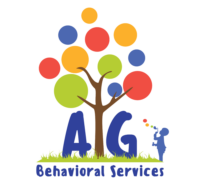Exploring Careers in Applied Behavior Analysis: BCBA, RBT, and Behavior Tech
Applied Behavior Analysis (ABA) is a therapeutic strategy used to improve specific behaviors in individuals, often those with developmental disorders such as autism. This field relies on data-driven techniques to modify behavior, enhancing the quality of life for many. Professionals in this field play different roles, each contributing uniquely to the behavioral improvement of their clients. Let’s explore three key careers in ABA: Board Certified Behavior Analyst (BCBA), Registered Behavior Technician (RBT), and Behavior Technician.
Board Certified Behavior Analyst (BCBA) ©️
The role of a Board Certified Behavior Analyst (BCBA) is central in ABA therapy. BCBAs hold at least a master’s degree in psychology, education, or a related field, along with a certification from the Behavior Analyst Certification Board (BACB). These professionals are responsible for assessing clients, developing and implementing behavior intervention plans, and monitoring outcomes.
BCBAs work closely with families, caregivers, and other professionals to provide comprehensive treatment plans. They also supervise the work of RBTs and Behavior Technicians, ensuring the fidelity and effectiveness of the interventions. BCBAs find opportunities in various settings, including schools, private clinics, and community centers.
Recent Posts
- Latest Autism Research and News Highlights
- Historic $50 Million Gift Spurs Launch of the Lurie Autism Institute at CHOP and Penn Medicine
- Daily Mindfulness Practice Reduces Anxiety for Autistic Adults
- Navigating Autism in New Jersey: Challenges for Parents Raising Children on the Spectrum
- Preparing for Summer Transitions with ABA: Strategies to Maintain Progress
Registered Behavior Technician (RBT)
RBTs are paraprofessionals who work under the close, ongoing supervision of a BCBA. The RBT certification requires a high school diploma, completion of a 40-hour training program, and passing a national exam. RBTs are hands-on practitioners who directly implement behavioral analysis services.
Their day-to-day responsibilities include carrying out behavioral interventions, collecting data on client progress, and assisting BCBAs in managing behavioral programs. Since RBTs interact frequently with clients, they are instrumental in the practical application of ABA principles and techniques.
Behavior Technician
Behavior Technicians, often referred to as ABA therapists, work directly with clients to implement behavior plans designed by BCBAs. While not always required to be RBT-certified, many employers prefer or even mandate this certification. Behavior Technicians are tasked with similar responsibilities as RBTs, including engaging clients in activities designed to meet specific behavioral goals, recording data, and providing feedback to supervisors.
These technicians are typically employed in home settings, schools, or specialized behavioral centers. They play a critical role in the direct delivery of therapeutic services and often form close bonds with their clients through regular sessions.
Career Pathways and Professional Development
Each of these roles requires specific education, training, and certification. Aspiring professionals can start as Behavior Technicians, gain experience, and then pursue RBT certification. With further education and training, one can become a BCBA, opening doors to more advanced positions in research, supervision, and private practice.
Professional development is a constant in the ABA field, with continuous learning and adaptation needed to keep up with best practices and the latest research. BCBAs, for instance, must complete continuing education units (CEUs) to maintain their certification.
Summary
Careers in Applied Behavior Analysis are both challenging and rewarding, providing significant opportunities to make a difference in the lives of individuals with behavioral needs. Whether one chooses to become a BCBA, RBT, or Behavior Technician, each role is crucial in delivering effective ABA therapy and supporting clients in achieving their personal goals. For those passionate about making a positive impact through behavioral change, a career in ABA offers a fulfilling pathway.
AGBS provides ongoing care for children, adolescents, and young adults with autism to improve the quality of their lives. If you would like learn more about how AGBS can help please contact us here , or call 908-913-0443.




